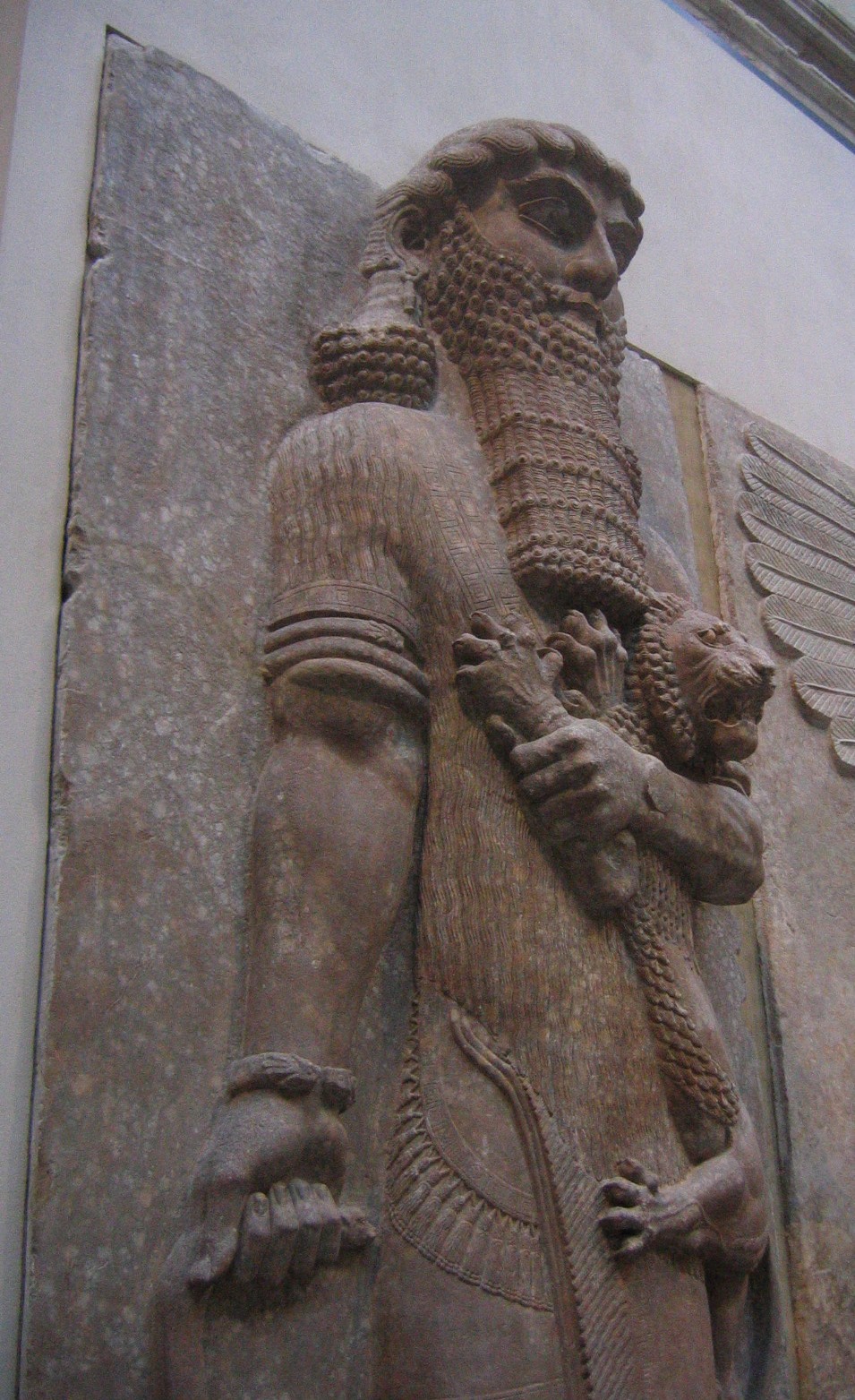Blog
He Who Saw the Deep: the Epic of Gilgamesh
Tags: History, Literature, Books, Iraq, Gilgamesh
(Note: Missing image, currently at /images/gilgamesh.jpeg)
(Note: Learn More section is badly formatted)
 Gilgamesh by Union (Wikipedia)
Gilgamesh by Union (Wikipedia)
The second book in my Sacer-Epic Reading Journey is The Epic of Gilgamesh. This work, regarded as the earliest known surviving epic, tells the story of its eponymous hero, Gilgamesh, semi-mythical king of Uruk, and his friend Enkidu. It has cast its shadow on numerous later works, including Homer’s epics and the Bible.
Like many ancient works, The Epic of Gilgamesh comes to us from a fragmentary list of sources, the earliest of which were a series of independent Sumerian poems about the hero. A more cohesive work appeared later, in Old Babylonian, though most of this has been lost. The most complete (“Standard”) version comes from surviving copies of twelve stone tablets, the best of which were discovered in the ruins of the Royal Library of Ashurbanipal, located in Nineveh (the one-time capital of Assyria, located on the outskirts of modern day Mosul, Iraq).
Synopsis
The Epic of Gilgamesh follows its hero, who rules the city of Uruk as an oppressor, and Enkidu, a wild man created by the gods to be the equal of Gilgamesh. Their initial strife against one another gives way to an intense bond of friendship, and the two proceed to adventure together, causing enough mischief that the gods intervene again, sentencing Enkidu to death. Grief drives Gilgamesh to search for the secret of eternal life.
Themes
Just from the synopsis above, we can detect a few central themes. Friendship, death, wisdom, knowledge, fear, and pride all offer themselves as likely candidates. In contrast to Shahnameh’s vast panorama, The Epic of Gilgamesh is an intimate affair, more familiar in scope if you’ve already read other epics like The Iliad and The Odyssey. Thus we can expect its themes to reflect the narrower scope and their effects on individuals rather than entire nations.
As I get a chance, I will continue my compilation of epic-themed excerpts (begun and partially explained here), which is taking the form of a concordance. Further, I will publish here on Medium any observations about the text that catch my interest.
Learn More
There is much more to read and/or listen to than I can link here, but the following sources should provide some good insight.
Read: Epic of Gilgamesh - Wikipedia *The Epic of Gilgamesh is an epic poem from ancient Mesopotamia that is often regarded as the earliest surviving great…*en.wikipedia.org Gilgamesh - Wikipedia *Gilgamesh (; 𒄑𒂆𒈦, Gilgameš, originally Bilgamesh 𒄑𒉈𒂵𒈩) is the main character in the Epic of Gilgamesh , an…*en.wikipedia.org Uruk - Wikipedia Edit descriptionen.wikipedia.org
Listen: Epic of Gilgamesh, In Our Time - BBC Radio 4 *Andrew George at SOAS, University of London Frances Reynolds at the University of Oxford Martin Worthington at the…*www.bbc.co.uk 54A-Gilgamesh: Did We Just Become Best Friends? *The Epic of Gilgamesh is amazing. It is quite possibly the oldest epic we have, and though it only exists in fragments…*www.mythpodcast.com 54B-Gilgamesh: Huge *Part two of the Epic of Gilgamesh, where Gilgamesh and Enkidu go off to fight Hugeness the Terrible, a firebreathing…*www.mythpodcast.com Myths and Legends: 54C-Gilgamesh: Dust *The end of the saga of Gilgamesh…and possibly the end of Gilgamesh, but not if the demi-god has anything to say about…*mythpodcast.libsyn.com
Note: This is part of a series of posts dealing with the reading of one sacred/epic work per month in 2017. See below for more information on what I’m doing and how to follow along. 2017 Sacer-Epic Reading Journey *In November of 2016, among my Facebook friends, I sketched out an idea for a reading list for 2017 based around a…*medium.com